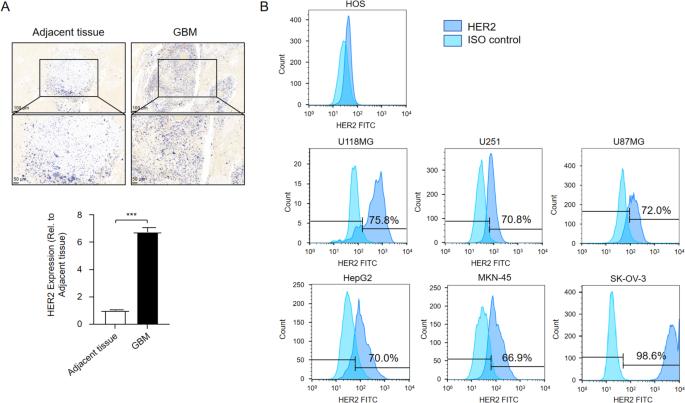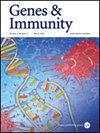HER2-targeting CAR-T cells show highly efficient anti-tumor activity against glioblastoma both in vitro and in vivo
IF 4.5
3区 医学
Q1 GENETICS & HEREDITY
引用次数: 0
Abstract
Glioblastoma (GBM) is the most common and aggressive malignant primary brain tumor in adults. Current treatment options for GBM include surgical resection, radiation, and chemotherapy, which predominantly slow cancer growth and reduce symptoms, resulting in a 5-year survival rate of no more than 10%. Chimeric antigen receptor (CAR) T-cell therapy is a new class of cellular immunotherapy that has made great progress in treating malignant tumors. Human epidermal growth factor receptor 2 (HER2) is overexpressed in GBM and may provide a potential therapeutic target for GBM treatment. In this study, we constructed third-generation CAR-T cells targeting the HER2 antigen in GBM. HER2-CAR-T cells showed effective anti-tumor activity both in vitro and in vivo. Furthermore, HER2-specific CAR-T cells exhibited strong cytotoxicity and cytokine-secreting abilities against GBM cells in vitro. Anti-HER2 CAR-T cells also exhibited increased cytotoxicity with increasing effector-to-target ratios. Anti-HER2 CAR-T cells delivered via peritumoral injection successfully stunted tumor progression in vivo. Moreover, peritumoral intravenous administration of anti-HER2 CAR-T cells resulted in therapeutic improvement against GBM cells compared with intravenous administration. In conclusion, our study shows that HER2 CAR-T cells represent an emerging immunotherapy for treating GBM.

HER2靶向CAR-T细胞在体外和体内对胶质母细胞瘤都显示出高效的抗肿瘤活性。
胶质母细胞瘤(GBM)是成人中最常见的侵袭性恶性原发性脑肿瘤。目前治疗 GBM 的方法包括手术切除、放疗和化疗,主要是减缓癌症生长和减轻症状,5 年生存率不超过 10%。嵌合抗原受体(CAR)T 细胞疗法是一种新型细胞免疫疗法,在治疗恶性肿瘤方面取得了重大进展。人表皮生长因子受体2(HER2)在GBM中过度表达,可能为GBM治疗提供潜在的治疗靶点。在这项研究中,我们构建了第三代靶向GBM中HER2抗原的CAR-T细胞。HER2-CAR-T细胞在体外和体内均显示出有效的抗肿瘤活性。此外,HER2特异性CAR-T细胞在体外对GBM细胞具有很强的细胞毒性和细胞因子分泌能力。抗HER2 CAR-T细胞的细胞毒性也随着效应物与靶标比率的增加而增强。通过瘤周注射的抗HER2 CAR-T细胞成功阻止了肿瘤在体内的发展。此外,与静脉注射相比,瘤周静脉注射抗 HER2 CAR-T 细胞可改善对 GBM 细胞的治疗效果。总之,我们的研究表明,HER2 CAR-T细胞是治疗GBM的一种新兴免疫疗法。
本文章由计算机程序翻译,如有差异,请以英文原文为准。
求助全文
约1分钟内获得全文
求助全文
来源期刊

Genes and immunity
医学-免疫学
CiteScore
8.90
自引率
4.00%
发文量
28
审稿时长
6-12 weeks
期刊介绍:
Genes & Immunity emphasizes studies investigating how genetic, genomic and functional variations affect immune cells and the immune system, and associated processes in the regulation of health and disease. It further highlights articles on the transcriptional and posttranslational control of gene products involved in signaling pathways regulating immune cells, and protective and destructive immune responses.
 求助内容:
求助内容: 应助结果提醒方式:
应助结果提醒方式:


